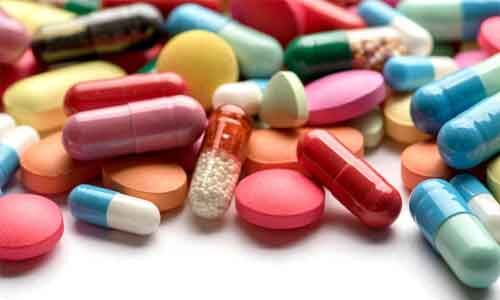- Home
- Medical news & Guidelines
- Anesthesiology
- Cardiology and CTVS
- Critical Care
- Dentistry
- Dermatology
- Diabetes and Endocrinology
- ENT
- Gastroenterology
- Medicine
- Nephrology
- Neurology
- Obstretics-Gynaecology
- Oncology
- Ophthalmology
- Orthopaedics
- Pediatrics-Neonatology
- Psychiatry
- Pulmonology
- Radiology
- Surgery
- Urology
- Laboratory Medicine
- Diet
- Nursing
- Paramedical
- Physiotherapy
- Health news
- Fact Check
- Bone Health Fact Check
- Brain Health Fact Check
- Cancer Related Fact Check
- Child Care Fact Check
- Dental and oral health fact check
- Diabetes and metabolic health fact check
- Diet and Nutrition Fact Check
- Eye and ENT Care Fact Check
- Fitness fact check
- Gut health fact check
- Heart health fact check
- Kidney health fact check
- Medical education fact check
- Men's health fact check
- Respiratory fact check
- Skin and hair care fact check
- Vaccine and Immunization fact check
- Women's health fact check
- AYUSH
- State News
- Andaman and Nicobar Islands
- Andhra Pradesh
- Arunachal Pradesh
- Assam
- Bihar
- Chandigarh
- Chattisgarh
- Dadra and Nagar Haveli
- Daman and Diu
- Delhi
- Goa
- Gujarat
- Haryana
- Himachal Pradesh
- Jammu & Kashmir
- Jharkhand
- Karnataka
- Kerala
- Ladakh
- Lakshadweep
- Madhya Pradesh
- Maharashtra
- Manipur
- Meghalaya
- Mizoram
- Nagaland
- Odisha
- Puducherry
- Punjab
- Rajasthan
- Sikkim
- Tamil Nadu
- Telangana
- Tripura
- Uttar Pradesh
- Uttrakhand
- West Bengal
- Medical Education
- Industry
Some antibiotics linked to hypoglycemia independently, finds study

USA: The use of antibiotics, including fluoroquinolones, in many patients, is associated with hypoglycemia when they are also taking glucose-lowering medications (sulfonylureas or meglitinides), according to a recent study published in the journal Drug Safety.
The study further found that certain antibiotics (cefditoren, tigecycline, ertapenem, and clarithromycin) are associated with hypoglycemia even if not taken with sulfonylureas or meglitinide. According to the authors, the association between ertapenem and hypoglycemia has not been previously reported.
Fluoroquinolones, clarithromycin, linezolid, tigecycline, cefditoren, doxycycline, and trimethoprim-sulfamethoxazole are known to be associated with hypoglycemia, but few studies have considered concomitant glucose-lowering medications. Christopher R. Frei, The University of Texas at Austin, San Antonio, TX, USA, and colleagues evaluated the association between hypoglycemia and antibiotics using the US Food and Drug Administration Adverse Event Reporting System (FAERS) while accounting for concomitant glucose-lowering medications including sulfonylureas and meglitinides.
FAERS reports from 1 January 2004 to 31 December 2017 were included in the study. Reporting odds ratios (RORs) and corresponding 95% confidence intervals (CIs) for the association between antibiotics and hypoglycemia were calculated. An association was considered to be statistically significant when the lower limit of the 95% CI was > 1.0.
After applying the inclusion criteria, a total of 2,334,959 reports (including 18,466 hypoglycemia reports) were considered.
Key findings of the study include:
- Statistically significant hypoglycemia RORs (95% CI) for antibiotics were: cefditoren 14.03 (8.93–22.03), tigecycline 3.32 (1.95–5.65), clarithromycin 2.41 (1.89–3.08), ertapenem 2.07 (1.14–3.75), moxifloxacin 2.06 (1.59–2.65), levofloxacin 1.66 (1.37–2.01), and linezolid 1.54 (1.07–2.20).
- After adjusting for concomitant sulfonylureas and meglitinides, the following antibiotics were still significantly associated with hypoglycemia: cefditoren 14.25 (9.08–22.39), tigecycline 3.34 (1.96–5.68), ertapenem 1.93 (1.03–3.60), and clarithromycin 1.56 (1.15–2.11).
The study, "Hypoglycemia Associated with Antibiotics Alone and in Combination with Sulfonylureas and Meglitinides: An Epidemiologic Surveillance Study of the FDA Adverse Event Reporting System (FAERS)," is published in the Springer journal Drug Safety.
Dr Kamal Kant Kohli-MBBS, DTCD- a chest specialist with more than 30 years of practice and a flair for writing clinical articles, Dr Kamal Kant Kohli joined Medical Dialogues as a Chief Editor of Medical News. Besides writing articles, as an editor, he proofreads and verifies all the medical content published on Medical Dialogues including those coming from journals, studies,medical conferences,guidelines etc. Email: drkohli@medicaldialogues.in. Contact no. 011-43720751


